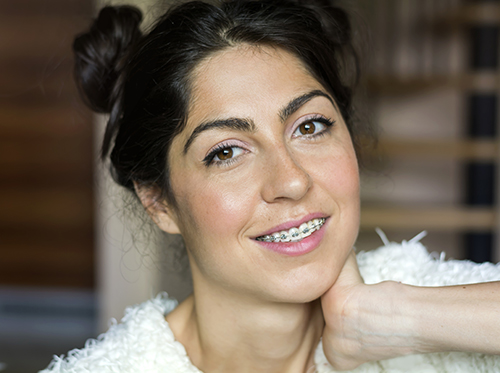How Braces Can Work at Any Age
December 13th, 2023

Are you an adult who is considering getting braces? Perhaps you’ve had them before, but over the years that dental work has been reversed. Or maybe you’ve never had any orthodontic work done, but are considering braces for the first time. In either case, Harte Orthodontics can help you enjoy straighter teeth, an improved bite, and a more beautiful smile. If you are considering getting braces, here is what you need to know about adult orthodontic work from Dr. Douglas and Larry Harte.
Can braces work for adults?
Absolutely! Braces work for just about anyone. However, there are several different types of braces, and not all of them may work for you. Different types of orthodontic treatments include:
- Ceramic braces
- Metal braces
- Self-ligating brackets
- Lingual brackets (braces behind the teeth)
- Invisible braces
- Rubber bands for bite correction
- Headgear and other appliances
By scheduling a consultation, we can determine which treatment or combination of treatments would be best for your specific needs.
How do I get started?
Getting braces can be a little bit daunting. At first glance, the process may appear expensive and time-consuming. However, if you take it step by step, getting braces can be a simple and relatively pain-free experience. Here are the first steps you need to take to get on the road to straight teeth:
First, you need information. If you are nervous about getting braces, or are having trouble getting started, learning more about the process can help ease your mind. Here are a few sample questions to ask:
- What kind of braces do you recommend for my teeth?
- How long will the treatment take?
- How often will I need to come in for adjustments?
- What is the total cost of the treatment? Do you accept insurance? Will you require the full amount up front, or do you have payment plans?
Asking these types of questions will help you understand what to expect during the entire process, which can aid your decision on the proper course of action.
The next step is to complete any prerequisite treatment. During your first meeting with Dr. Douglas and Larry Harte, we’ll need to take some X-rays and molds of your teeth, and then help you determine an appropriate treatment plan. Recommendations may include some preliminary dental work before you get your braces, which can be an important step in making sure your orthodontic treatments are effective.
Once you have completed these steps, you are ready to get started! After you’ve chosen a treatment plan and undergone any necessary prerequisite dental work, you’ll be able to get your braces. Just like that, you’re on your way to a better smile! If you’d like to get started right away, call our Sparta or Livingston, NJ location today!





